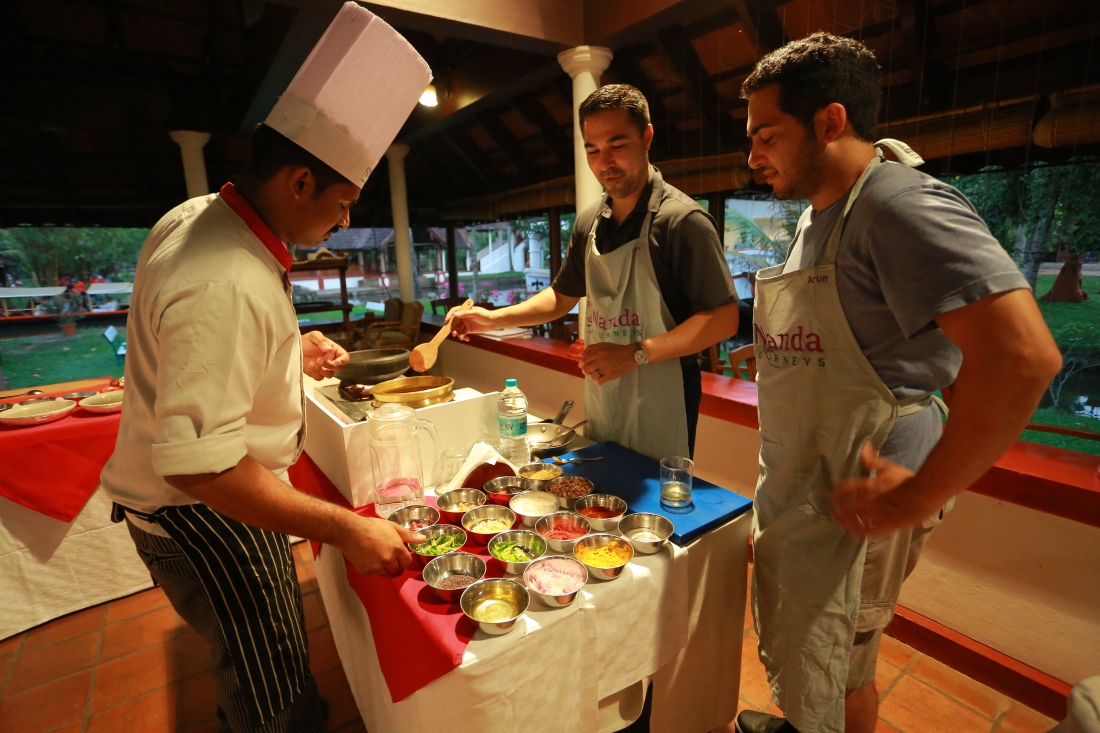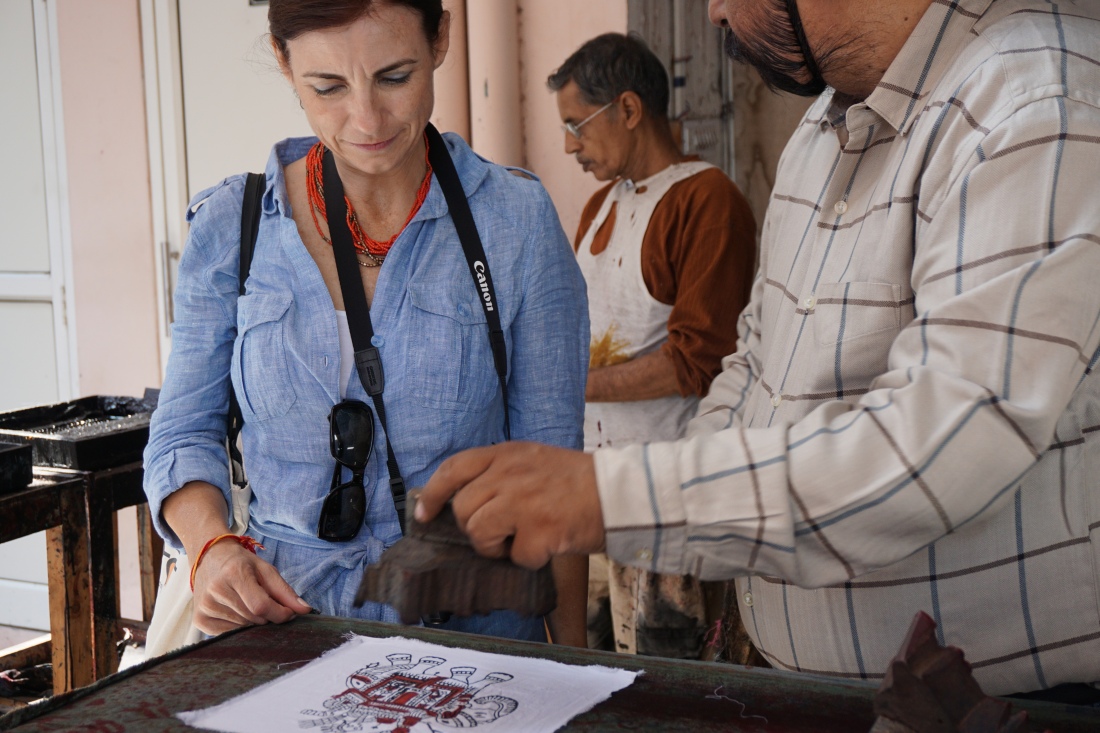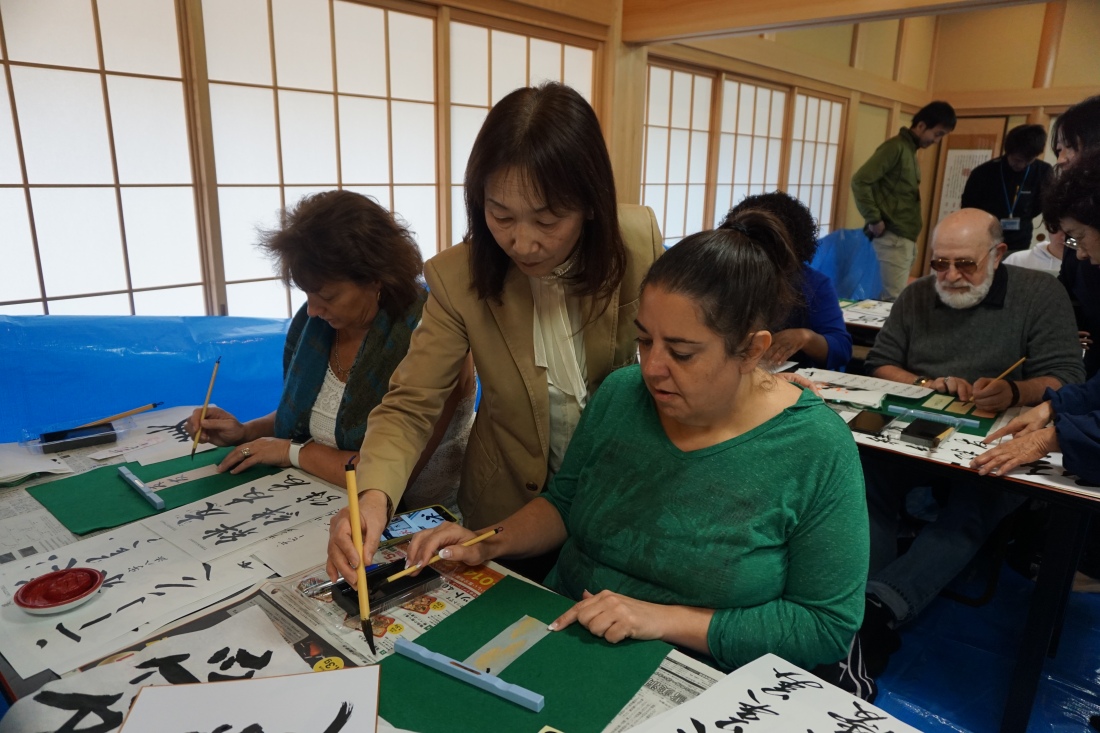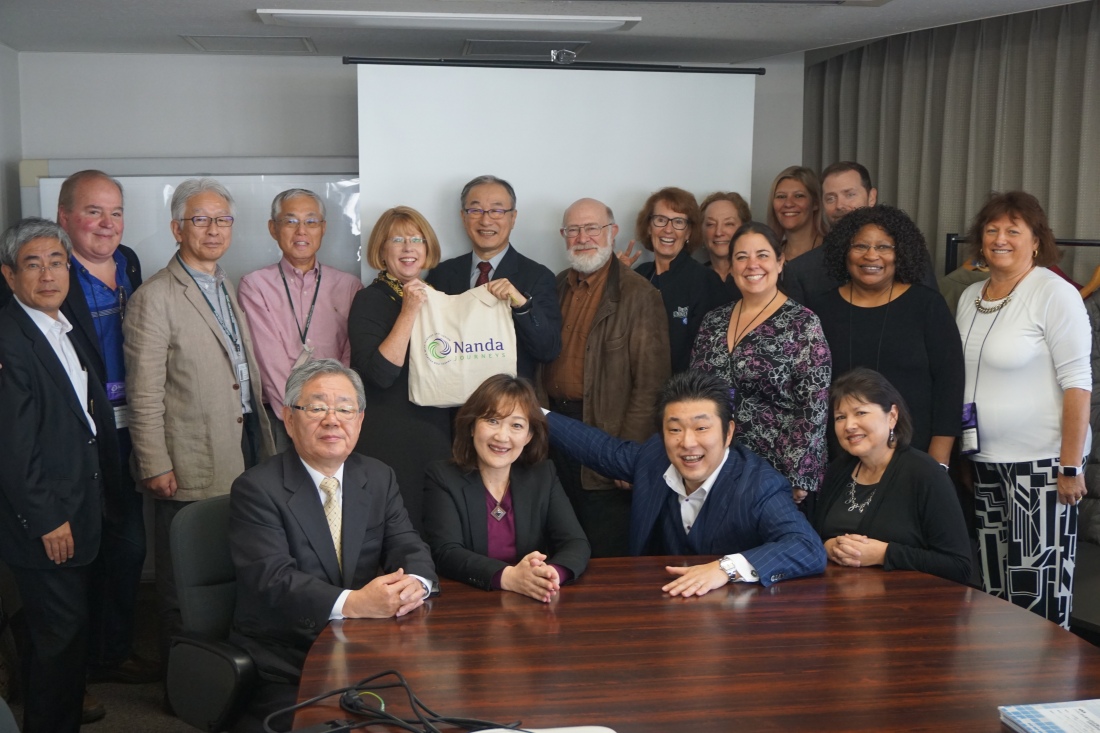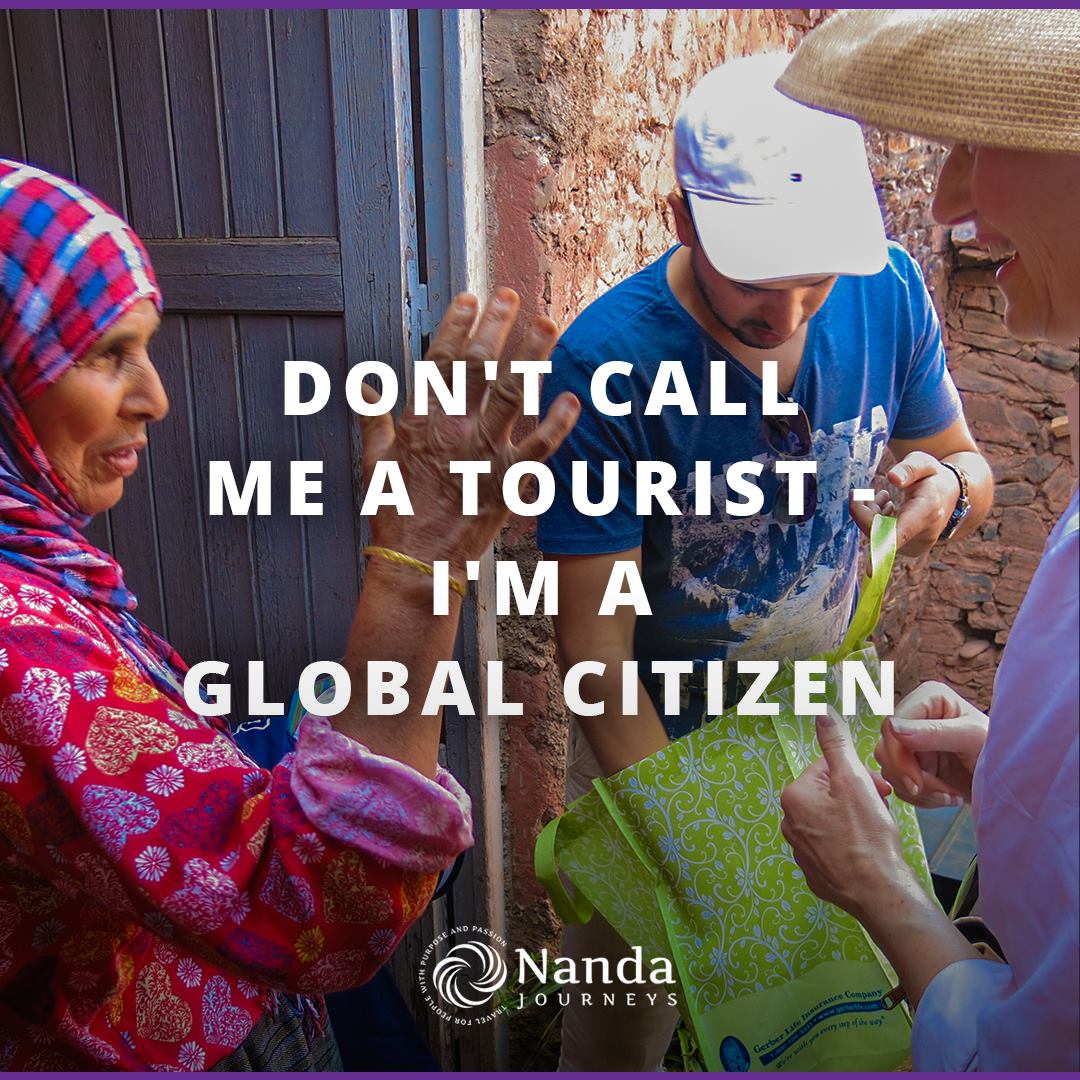
When you start to envision your international travel experiences, do you do so as a traveler or as a tourist? Do you believe there is a distinction between the two references or are they one and the same? This conversation cropped up all the time in our team discussions and product development meetings as we established the core values for Nanda Journeys. There are many articles written on the subject and as many alternative perspectives on the topic!
Ultimately, we decided our guests would be referred to as global citizens or travelers and not tourists. Our belief is that there are enough nuances and differences to make the distinction unique and that we believe our programs lend themselves to a traveler vs. tourist denomination. In fact, we went a step further and the term “Don’t call me a tourist, I am a global citizen” has become a secondary tag-line as we talk about our unique journeys and how they differ from other international travel opportunities.
I’m sure at this point you are asking, “So what exactly is the difference between a traveler, a global citizen, and a tourist and is one better than the other?” My own personal belief is that any type of international travel is a great thing, a glorious thing. Travel deepens our understanding of other cultures, their history, their beliefs and ultimately enriches our lives and the lives of others living in communities where tourism dollars are often key, if not the primary source of income for the local economy. I also believe it helps us to nurture global relations and promote a more peaceful and collaborative world.
As President Dwight D. Eisenhower proclaimed in his “The Chance for Peace” speech in 1953 to the American Society of Newspapers, “A nation’s hope of lasting peace cannot be firmly based upon any race in armaments but rather upon just relations and honest understanding with all other nations.”

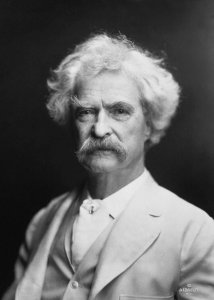
Or as Mark Twain so eloquently put it “Travel is fatal to prejudice, bigotry, and narrow-mindedness, and many of our people need it sorely on these accounts. Broad, wholesome, charitable views of men and things cannot be acquired by vegetating in one little corner of the earth all one’s lifetime.” – Mark Twain, Innocents Abroad
So, while we actively support and promote all modes and types of travel, we do see us fulfilling a particular niche that lends itself more to a global citizen and traveler than to a tourist.
As a global citizen or traveler, a key component of our experience is the desire to connect with local educators, business professionals, community leaders, government officials or community members to learn firsthand about their language, culture, history {past and present} and how we can deepen our connections and relationships to improve cross-cultural understanding between nations. As a tourist, a key motivator is more likely to be traveling to a beautiful new country that has unique elements which there may not be easy access to in one’s home country/state. A primary driver is likely to be access to activities, natural resources such as beaches, lakes and mountains and hotel chains that are somewhat familiar.
A global citizen or traveler is excited to learn about local customs and meet people in their homes, maybe shares stories over a home cooked meal. Or, head to a local culinary school or restaurant and learn how to cook a local dish. A tourist is likely to be more driven to find a restaurant that has an English menu and has food options that are a little more familiar.
A global citizen or traveler wants to personally impact the local community they visit and show their gratitude through support of a community project or service opportunity. Maybe they, as we do at Nanda Journeys, take gifts for people they will encounter along the way, help teach English at a local school, provide much need supplies that the community does not readily have access to such as basic medical supplies, hygiene products or as on one of our groups recently, flutes for the local music group who had never seen the instrument or practiced on it before. A tourist likely loves to participate in the activities offered by their local hotel, stay a little closer to their resort, or relax on the beautiful beach or waterfront.
A global citizen or traveler takes a little time to research local customs and language and may even take a basic language skills course before they travel. At a minimum global citizens and travelers learn basic phrases so they can be gracious and thankful in the local language. Tourists are likely to expect that all interactions and communications be conducted in their own language. They are less likely to be motivated to learn the language and will select a destination where they know they can communicate easily in their mother tongue.
A global citizen or traveler is likely to select accommodations that are locally owned, boutique style and non-chain ownership. Loyalty points and rewards are less likely to be a factor in the decision as to where they might stay whereas a tourist is more likely to be loyal to a certain hotel brand to ensure they can reap the benefits of their loyalty. The location of accommodation is also likely to be different. For travelers, they are more comfortable with a non-central location vs. being in the heart of the city or town, if the accommodation is unique to the area and adds value to their cultural experience. Maybe a converted historic building, a former Maharaja Palace, glamping tents in a remote village, or a unique home-stay appeals to a traveler or global citizen. Tourists are more likely to select a chain hotel or a cruise where the amenities and facilities are more familiar and comfortable.
As you can see, there are merits to all styles of travel. None is better or worse than the other, rather the way we experience a destination is quite different in the same way that we are each different both in life and in travel. We at Nanda Journeys are excited to provide programs that are more likely to appeal to the global citizen and traveler while at the same time broadening the appeal to the segment of tourists who want to do or see more but maybe just don’t know how.
We encourage everyone to seek out new experiences, visit new places, and engage in a journey that will open your eyes and awaken your senses!
“That’s the glory of foreign travel, as far as I am concerned. I don’t want to know what people are talking about. I can’t think of anything that excites a greater sense of childlike wonder than to be in a country where you are ignorant of almost everything. Suddenly you are five years old again. You can’t read anything, you have only the most rudimentary sense of how things work, you can’t even reliably cross a street without endangering your life. Your whole existence becomes a series of interesting guesses.” Bill Bryson, Neither Here Nor There
Safe and happy travels wherever and however you may choose to explore.
Nicola Balmain
Founder/CEO – Nanda Journeys
